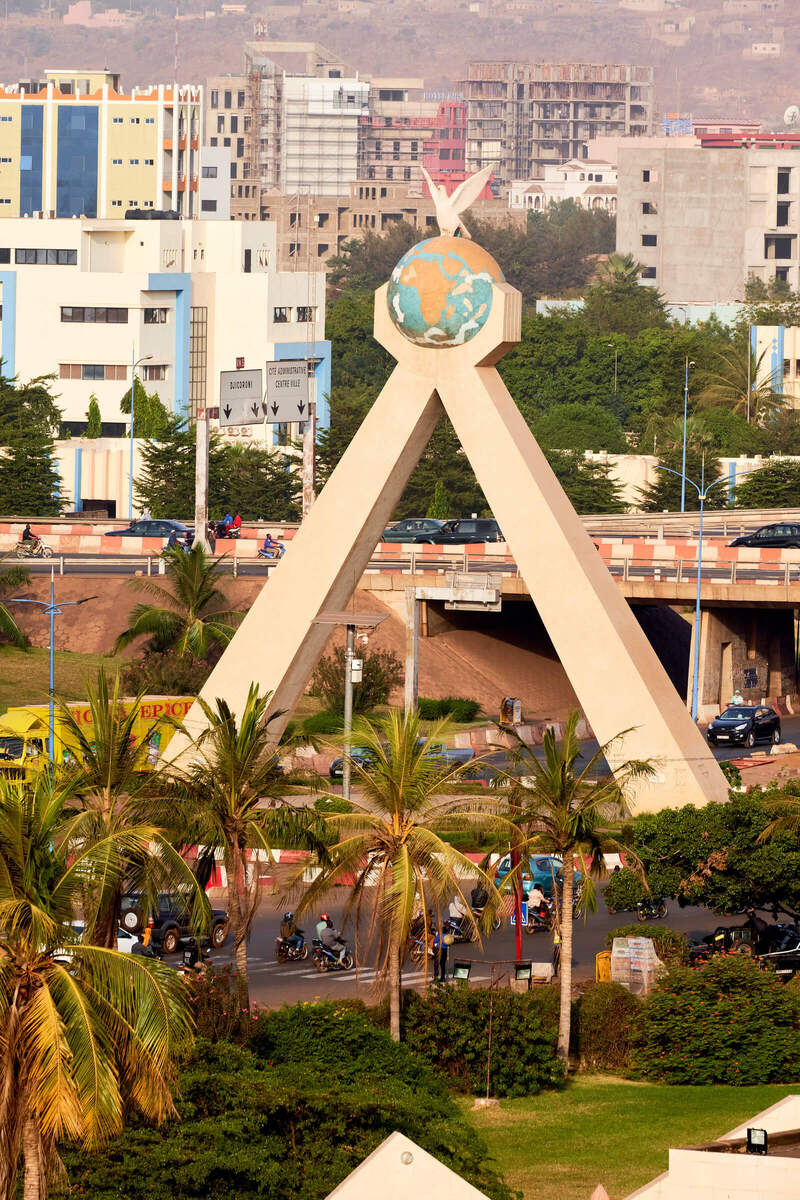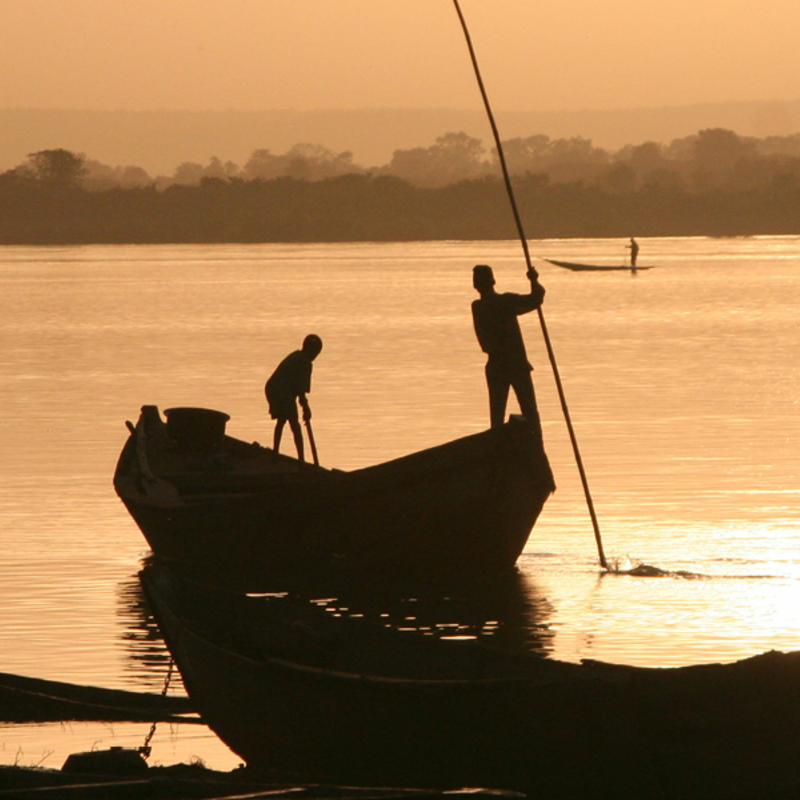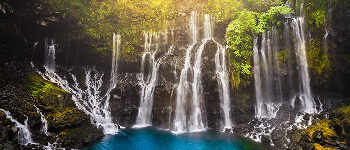Practical information
Entry requirements
Non-Malian nationals wishing to travel to Mali must obtain a visa in advance. The visa is issued by the Consulate General of Mali in Paris or Marseille for a minimum duration of 30 days and can be renewed on-site. Travelers must hold a valid passport with at least 6 months of remaining validity.
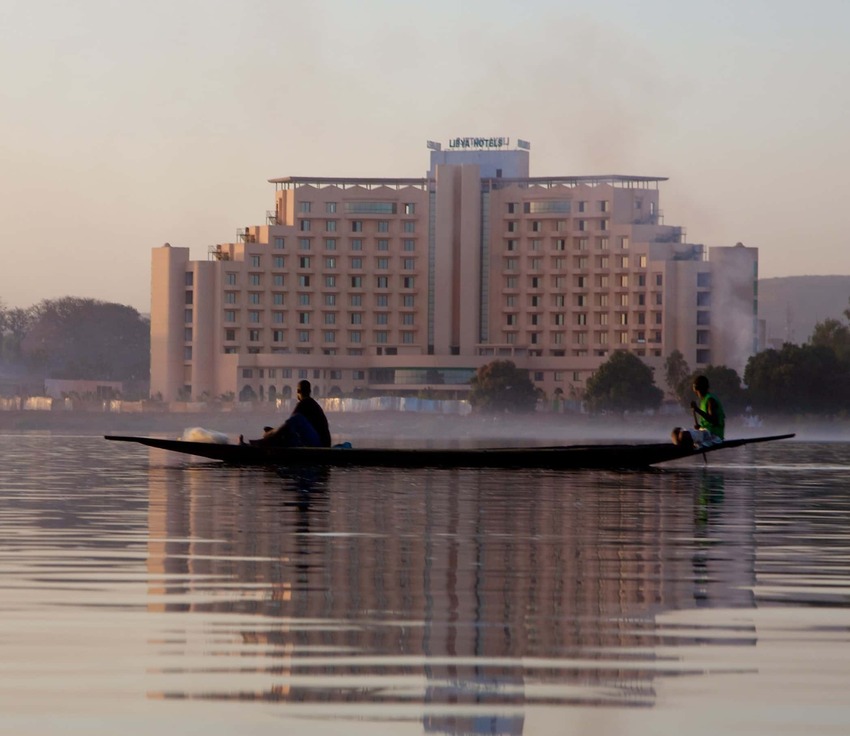
Vaccinations
A yellow fever vaccination is mandatory to enter Mali and must be administered at an approved center before departure. It's also recommended to update your diphtheria-tetanus-polio (DTP) vaccine, and for children, the MMR (measles-mumps-rubella) vaccine. A tuberculosis vaccine is also advisable.
It is strongly recommended to get vaccinated against typhoid fever and hepatitis A and B, to protect against infections related to local conditions.
Vaccination against bacterial meningitis (strains A, C, Y, and W135) is highly recommended, particularly for stays during the dry season.
In some cases, a rabies vaccine may also be recommended depending on the places you plan to visit and the nature of your stay. It is essential to consult a doctor or an international vaccination center to assess your specific needs before departure.
Obtaining a visa
The consular fee for a one-month visa (minimum duration) is approximately €70.
You must submit a pre-application for your visa online via the website of the Embassy of Mali in France.
On the day you submit your visa application at the Consulate General of Mali in France, you will need to provide the following documents:
- A valid passport (at least 6 months remaining validity).
- A completed and signed visa application form.
- A recent passport photo.
Additional information about your visa application for Mali:
- A visa fee is required at the time of application.
- Payment by credit card is recommended.
- Usual processing time: 2 to 4 days.
Information about customs and immigration formalities is provided for reference only. Corsair cannot be held responsible if you are not compliant with the authorities’ requirements. The Mali Tourism Office does not have an office in France.
We also recommend contacting the Consulate General of Mali in France for all useful information and to help prepare your trip:
Consulate General of Mali in France
53 rue Hoche, 93177 Bagnolet – FRANCE
Tel: 01 55 82 08 30 – Fax: 01 48 51 67 63
Once there
Arrival at Modibo Keïta International Airport
Upon arrival at Modibo Keïta International Airport in Bamako, you will go through customs and be required to present your passport along with your vaccination certificate for yellow fever. Taxis are available outside the airport to take you into the city. It’s recommended to agree on the fare before getting in, as prices are not always fixed.
If you’ve arranged a transfer with your hotel, be sure to confirm the details in advance. Currency exchange offices are also available in the arrivals hall to convert your money into CFA francs, but it may be wise to compare rates with exchange services in the city.
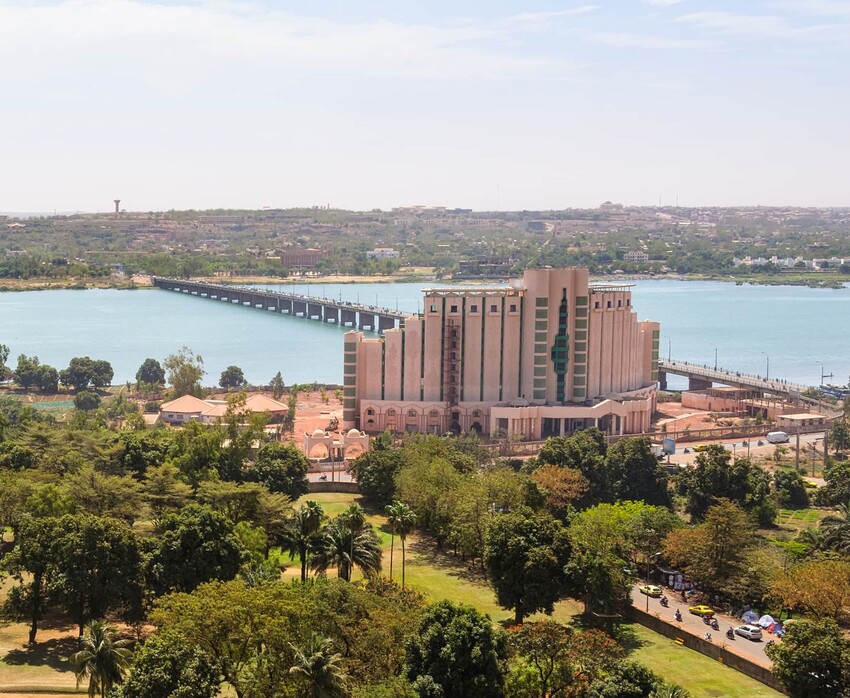
Store hours
Most shops are open from 8 am to 5 pm, Monday through Friday.
Transportation
In Bamako
To get around the capital, as in most large cities in the country, you can choose between yellow taxis or shared public minibuses called SOTRAMA, which are relatively affordable.
Taxi rides cost between 1,500 CFA francs (€2.50) and 2,000 CFA francs (around €3) per person, compared to 150 to 200 CFA francs (€0.22 to €0.30) for SOTRAMA city buses.
Between major cities
For intercity travel, it’s recommended to use private coach companies, which are considered more reliable (such as Binke Transport, Bani Transport, etc.). These are gradually replacing the older fleet of "bush taxis" (Peugeot 404s), which are less comfortable and may charge additional baggage fees.
Renting a car locally is not advisable, as third-party liability insurance is often not upheld by Malian drivers.
Safety
The southern half of the country, including the Bamako region, is generally safe, though increased caution is still recommended. Outside of this zone — especially for travel in the northern regions — it is strongly advised to consult the travel advisories from the French Ministry of Foreign Affairs.
Services
Banks and administrative offices are open from 8 am to 4 pm, Monday to Friday.
Must-sees
Highlights
Colorful Bamako
The beating heart of West Africa, built along the Niger River, Mali’s capital has retained the soul of a village with its bustling markets and mosques, despite the fast-paced lifestyle of its residents. Lively and welcoming, Bamako is a place where both tradition and modern aspirations coexist. Visitors are often struck by the warmth of its people, its refreshing charm, and the rich collections in its museums, which reflect the ancient history of Mali's many peoples.
National Museum of Mali
Start your visit at the must-see National Museum of Mali, where you can admire hundreds of masks and sculptures from the fascinating Bambara and Dogon cultures. Then, take time to stroll through the old colonial district, a reminder of Mali’s French colonial past. Don’t miss the vibrant Rose Market, followed by a visit to the Maison de l’Artisanat — a true gathering place for locals. There, you'll find everything from essential Malian crafts to the most unexpected items — from traditional women’s cloths (balangos) to talismans sold by marabouts.
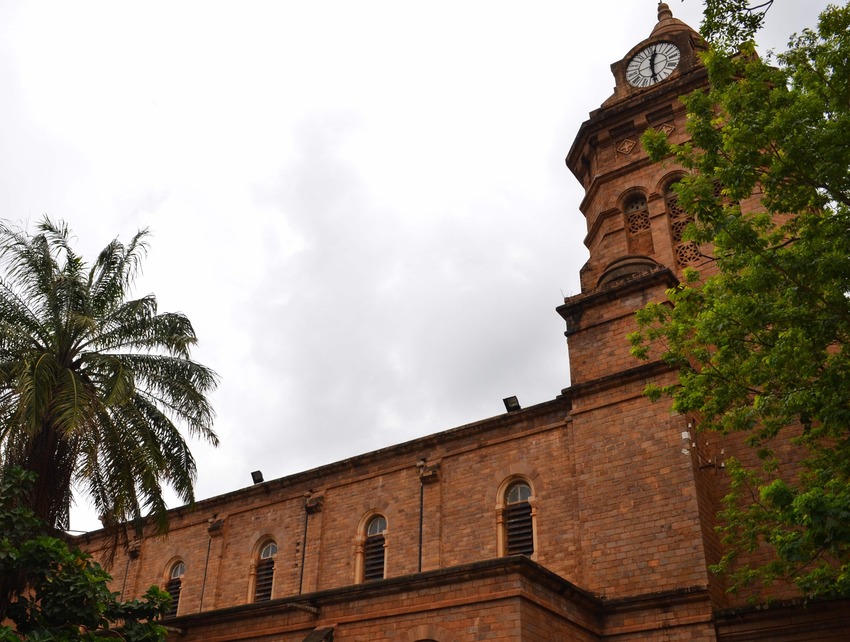
Aux environs de Bamako
Offrez-vous un détour le long du fleuve Niger jusqu’au port de Bamako Kalanban Koro, où le sable extrait en amont du fleuve est déchargé de longues pirogues (appelées pinasses) pour alimenter les chantiers de la capitale. Le paysage des alignements de pinasses amarrées offrira un sujet de choix aux amateurs de photographies.
Le parc national de Bamako
Découvrez un des plus grands jardins botaniques d’Afrique, conservatoire des écosystèmes représentatifs du climat subsaharien. Au milieu des espèces d’arbres et de fleurs endémiques du Mali, vous engagerez une conversation avec le jardinier sur les plantes médicinales ancestrales du Mali. Profitez du parc zoologique contigu au jardin pour prolonger votre visite et rencontrer des espèces sauvages du pays parmi lesquelles les célèbres lions et rhinocéros.
Gastronomy
Try Mali’s unmissable tô
Simple and generous in nature, Malian cuisine reveals itself through delicious cereal- or rice-based recipes served with flavorful sauces such as Fakoye or Djiabaji. One of the most popular dishes is wolof rice — simmered with tomatoes, onions, and fried chicken. You’ll also want to try the famous tô, a millet-based dough or cake served with a tasty okra sauce (a tropical fruit). Meat is widely appreciated and often accompanies festive dishes in Malian cuisine. Don’t miss the tukasu from Timbuktu — a traditional Songhaï recipe of wheat balls cooked in tomato sauce and lamb stew, usually served at major events.
Sip a bissap juice or a dolo beer
In Mali — especially in Bamako — enjoy a glass of bouye juice, made from the baobab fruit (also known as monkey bread). A favorite drink for celebrations, the reddish bissap juice (also called diableni), with its hibiscus "red fruit" flavor, is made by pressing dried hibiscus flowers. You might also enjoy tamarind juice flavored with vanilla — a refreshing treat after a hot day. And don’t miss the iconic dolo: an ancestral beer made from fermented sprouted millet.
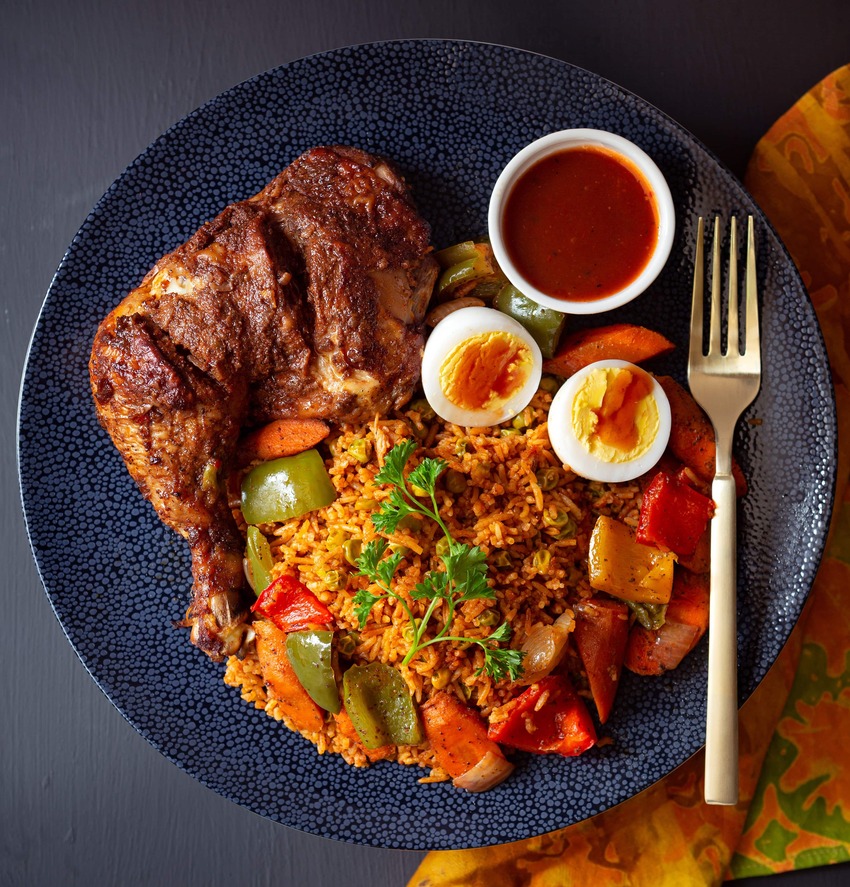
Culture
Music and photography
Present in everyday life as well as in every major celebration, music is considered a true institution in Mali.
The sound of the kora — a legendary instrument often referred to as the "African harp" — is at the heart of Malian composition. Once played by griots, who were both virtuosos and oral historians, it is now celebrated at the Acoustik Festival of Bamako, organized by kora master Toumani Diabaté.
In February, the Bamako International Percussion Festival, or “Festip,” brings together dance troupes, musicians, and African ballets from across West Africa to the rhythm of drums.
Photography lovers will enjoy the African Photography Encounters, a biennial festival that features exhibitions throughout Bamako’s cultural venues, including the National Museum and the National Library.
Architecture in Bamako
Bamako’s architecture has been historically influenced, starting in the 16th century, by a monumental style in banco (raw earth) known as Sudanese. These tall, minimalist structures are recognizable by their buttressed walls topped with pointed arches. Take time to admire such details on the gate of the famous Rose Market — although built in concrete in 1927, it remains one of the most faithful expressions of this architectural heritage.
Built in 1906 to house the governor of French Sudan — and now the official residence of the President of Mali — the Koulouba Palace is a striking example of colonial architecture. A tip before your visit: enjoy the shade of the majestic kapok trees, which rise over 30 meters high, as you walk along Avenue de la Liberté toward the hill of power.
Climate
Temperatures are very high in Bamako, which is located in a desert zone with an annual average of 28°C.
However, it’s best to plan your trip during the cooler season from November to March, when temperatures drop.
The best months to choose for your departure are: October, November, December, and January.
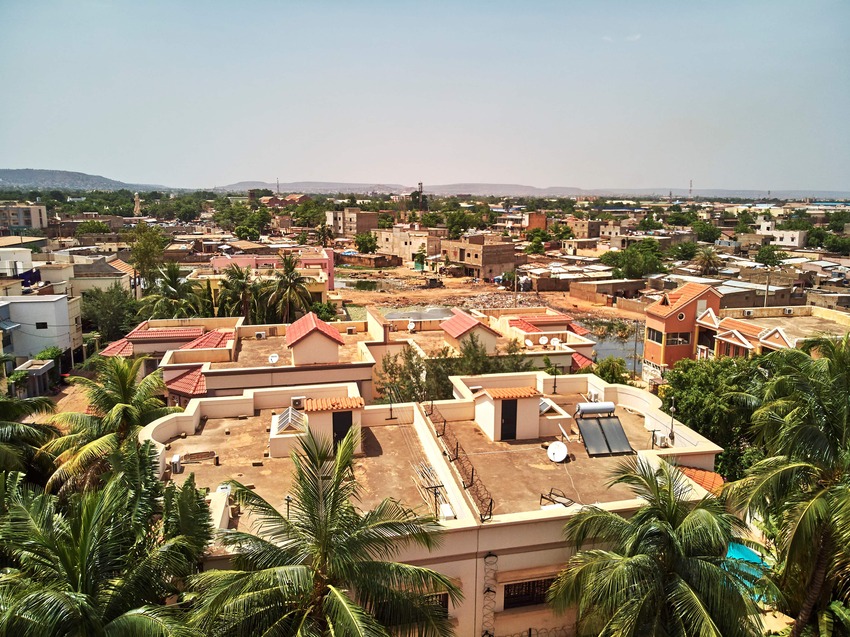
Book your flight to Mali with Corsair
Corsair offers flights to Bamako, giving you the chance to discover this unique destination in West Africa. Whether you’re booking your ticket to Mali in advance or looking for last-minute flights, our airline offers the best flight deals to Bamako at competitive fares.
With our online booking service, you can easily compare departure dates and offers to find cheap flights for your trip. By choosing Corsair, you’ll enjoy optimal onboard comfort and high-quality customer service for a pleasant travel experience.
Whether you’re departing from Paris or another city like Lyon, Bordeaux, Toulouse, or Nantes, Corsair offers convenient solutions to reach Mali. Some Paris to Bamako flights are direct, while others include a stopover in Cotonou. For departures from other regions, Corsair offers a Train + Air service that allows you to reach Paris-Orly Airport via Massy station, making your travel easier. Corsair is committed to offering optimized travel solutions to this must-see destination.
Once you arrive, enjoy your stay in Bamako by exploring the city center, its restaurants, and historical sites.
